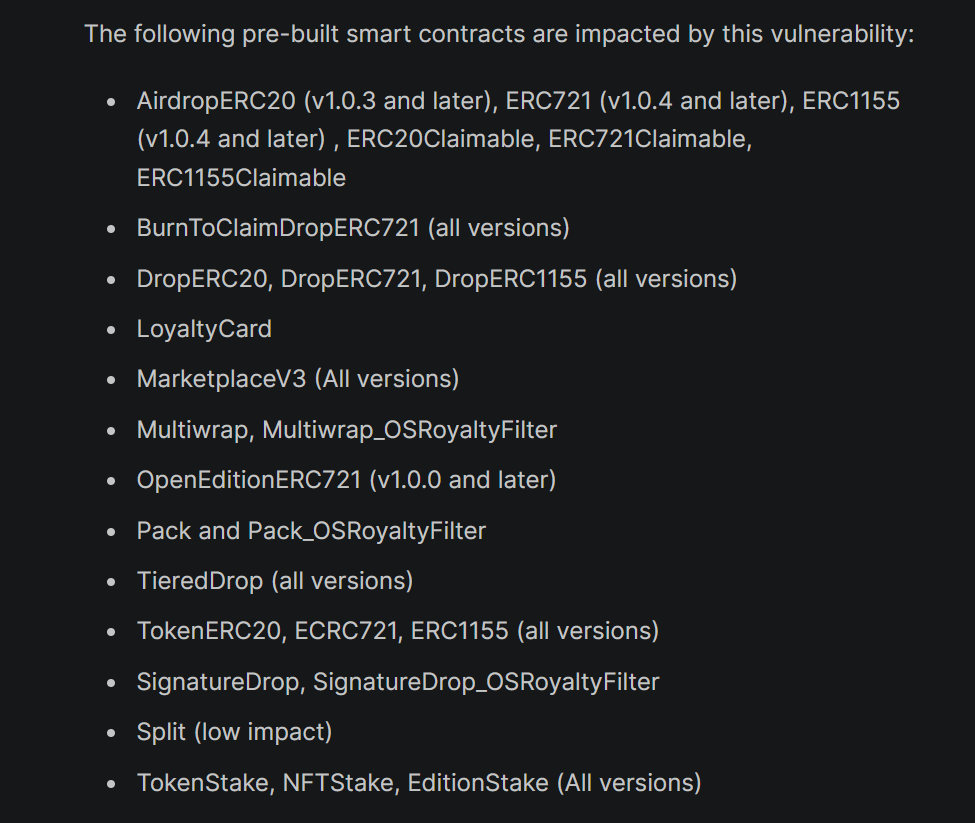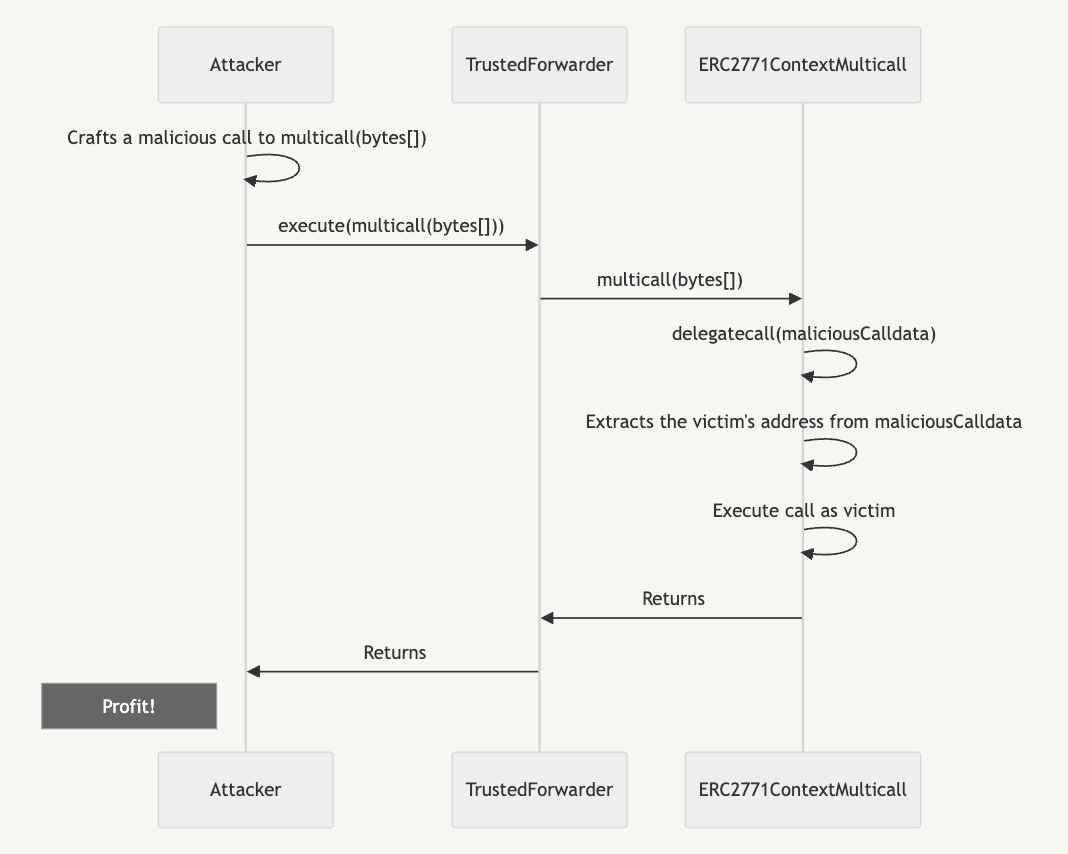[ad_1]
Quickly after Thirdweb revealed a safety vulnerability that might affect a variety of common smart contracts used throughout the Web3 ecosystem, OpenZeppelin recognized two particular requirements as the basis reason for the risk.
On Dec. 4, Thirdweb reported a vulnerability in a generally used open-source library, which may affect pre-built contracts, together with DropERC20, ERC721, ERC1155 (all variations), and AirdropERC20.
IMPORTANT
On November twentieth, 2023 6pm PST, we grew to become conscious of a safety vulnerability in a generally used open-source library within the web3 business.
This impacts quite a lot of sensible contracts throughout the web3 ecosystem, together with a few of thirdweb’s pre-built sensible contracts.…
— thirdweb (@thirdweb) December 5, 2023
In response, sensible contracts improvement platform OpenZepplin and NFT marketplaces Coinbase NFT and OpenSea proactively knowledgeable customers in regards to the risk. Upon additional investigation, OpenZepplin discovered that the vulnerability stems from “a problematic integration of two particular requirements: ERC-2771 and Multicall.”
The sensible contract vulnerability in query arises after the mixing of ERC-2771 and Multicall requirements. OpenZepplin recognized 13 units of susceptible sensible contracts, as proven under. Nevertheless, crypto service suppliers are suggested to deal with the difficulty earlier than dangerous actors discover a approach to exploit the vulnerability.

OpenZepplin’s investigation discovered that the ERC-2771 customary permits the overriding of sure name capabilities. This might be exploited to extract the sender’s tackle info and spoof calls on their behalf.

OpenZepplin advised the Web3 neighborhood utilizing the aforementioned integrations to make use of a 4-step methodology for making certain security — disable each trusted forwarder, pause contract and revoke approvals, put together an improve and consider snapshot choices.
IMPORTANT
On November twentieth, 2023 6pm PST, we grew to become conscious of a safety vulnerability in a generally used open-source library within the web3 business.
This impacts quite a lot of sensible contracts throughout the web3 ecosystem, together with a few of thirdweb’s pre-built sensible contracts.…
— thirdweb (@thirdweb) December 5, 2023
As well as, Thirdweb launched a mitigation tool that permits customers to attach their wallets and determine if a contract is susceptible.
Right this moment the @OpenZeppelin group disclosed particulars in regards to the @thirdweb vulnerabilities to our group. We have recognized a number of capabilities within the Relay contracts that might be griefed. As such, we’re deactivating Relay till the mandatory changes might be made.
To be completely clear,…
— Velodrome (@VelodromeFi) December 8, 2023
The decentralized finance (DeFi) platform Velodrome additionally deactivated its Relay providers till a brand new model is put in.
Associated: Coinbase’s Base network gets OpenZeppelin security integration
In a latest Cointelegraph Journal article, consultants revealed how artificial intelligence (AI) can help audit smart contracts and assist cybersecurity efforts.
gm ☕️
As somebody with zero Solidity proficiency, I had an already environment friendly sensible contract tailor-made to my very own wants by AI.
I dumped @Azuki‘s sensible contract into GPT-4 and had it ask me related questions.
Disclaimer: Skilled human audits and devs are nonetheless essential to… pic.twitter.com/K4UGfFC5dp
— SV (@0xSMV) March 16, 2023
James Edwards, the lead maintainer for cybersecurity investigator Librehash, mentioned that whereas AI chatbots have the flexibility to develop sensible contracts, deploying them in a reside atmosphere is dangerous.
Then again, Edwards highlighted the expertise’s potential to vet sensible contracts. Latest assessments confirmed AI’s capability to “audit contracts with an unprecedented quantity of accuracy that far surpasses what one may count on and would obtain from GPT-4.”
Whereas he concedes it’s inferior to a human auditor but, it might probably already do a powerful first move to hurry up the auditor’s work and make it extra complete.
Journal: Lawmakers’ fear and doubt drives proposed crypto regulations in US
[ad_2]
Source link





